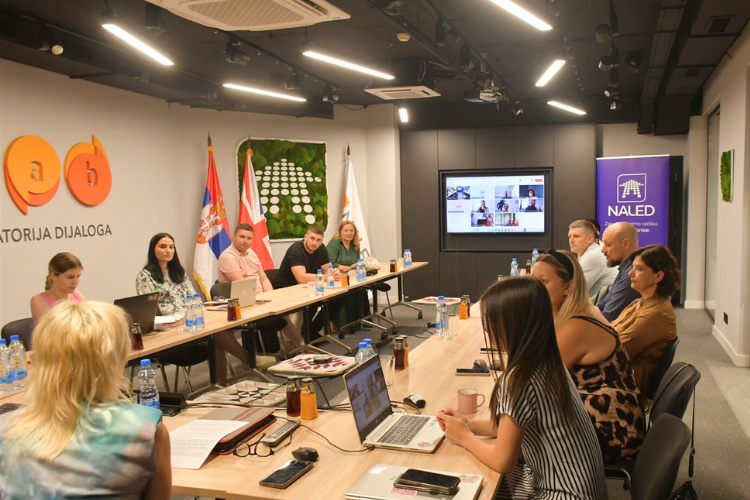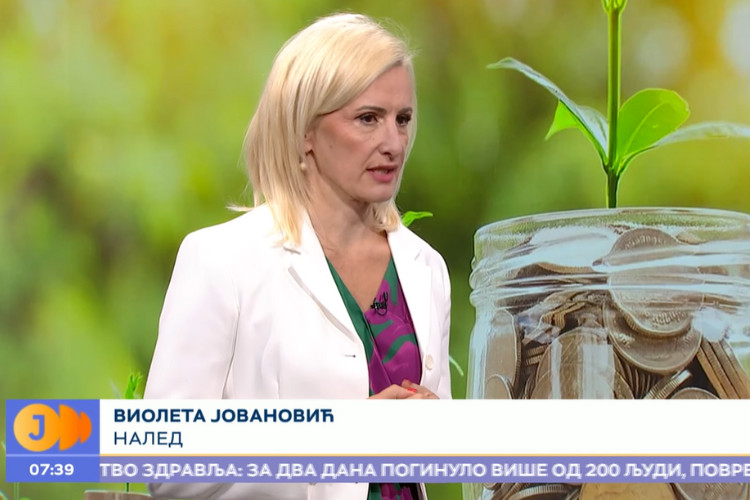Global Entrepreneurship Week - Financial Stability Remains the Biggest Challenge
Serbia enters the Global Entrepreneurship Week, which begins today, with encouraging numbers but also longstanding challenges. Entrepreneurship has been steadily growing over the past five years. However, out of nearly 370,000 registered entrepreneurs, only about two-thirds are truly active, employing more than 260,000 people. The most common sectors include professional, scientific, and innovation services, trade, and manufacturing. Most businesses operate in Belgrade, while the fewest are registered in the south and east of the country.
This year, NALED established the Small Business Council, which will address all key issues important for entrepreneurs. The Council has identified three areas requiring special attention – women’s, innovative, and traditional entrepreneurship – and, among 100 mapped obstacles, selected 10 priority issues it will address in the coming period.
“According to the European Commission’s 2025 Report on Serbia, the country remains moderately prepared in the areas of entrepreneurship and industrial policy, showing limited progress and needing greater predictability in the business environment, more transparent legislation, a new action plan for industrial strategy, and stronger financial and technical support for small businesses. The Council’s priorities are aligned with these guidelines and include advisory inspection visits at the start of business operations, consolidating tax and contribution payments into a single account, reinstating tax credits, and adopting a law that encourages entrepreneurship development,” says Irena Đorđević Šušić, Head of the Innovation and Entrepreneurship Unit at NALED.
She notes that NALED declared this year the Year of Equality, which directed the organization’s focus particularly toward women’s entrepreneurship. A study published this summer, she adds, showed that women make up only 29% of owners or directors of small enterprises and sole proprietorships.
“There is a particularly strong need for equal treatment of women entrepreneurs regarding maternity leave, parental leave, and child care leave, as well as for introducing phased support for self-employed women through training programs and higher subsidies,” explains Đorđević Šušić, emphasizing the importance of social entrepreneurship, in which women are often involved.
More than 10 million social enterprises worldwide put social missions before profit and employ 200 million people. In Europe, 2.8 million such enterprises employ 13.6 million people, while in Serbia the sector remains insufficiently recognized. Estimates suggest that between 200 and 500 social enterprises exist, but due to the lack of support programs, they have not registered official social enterprise status. The absence of systemic support and incentives slows the development of a sector that has the potential to address major social challenges, create new employment opportunities, and build a fairer and more inclusive economy, she notes.
Innovative entrepreneurship in Serbia faces similar challenges, with financing being one of the biggest issues – many startups rely on grants and donations, and nearly half do not have recurring monthly revenues. Additional challenges include importing and exporting innovative products, attracting customers, and hiring talent with the right skills, especially in sales.
For this reason, NALED has been implementing the StarTech project for the past five years, explains Đorđević Šušić. With support from Philip Morris, the project provides innovators with financial and mentoring assistance, while also improving the regulatory framework and developing the innovation ecosystem.
Additional benefits for small businesses are provided through the POS Program within the “Better Way” initiative. The program enables entrepreneurs to introduce electronic payment systems free of charge, helping them modernize operations, attract new customers, and reduce costs. Applications for the program are open until December 5 on the portal tvojbiznis.boljinacin.rs.







